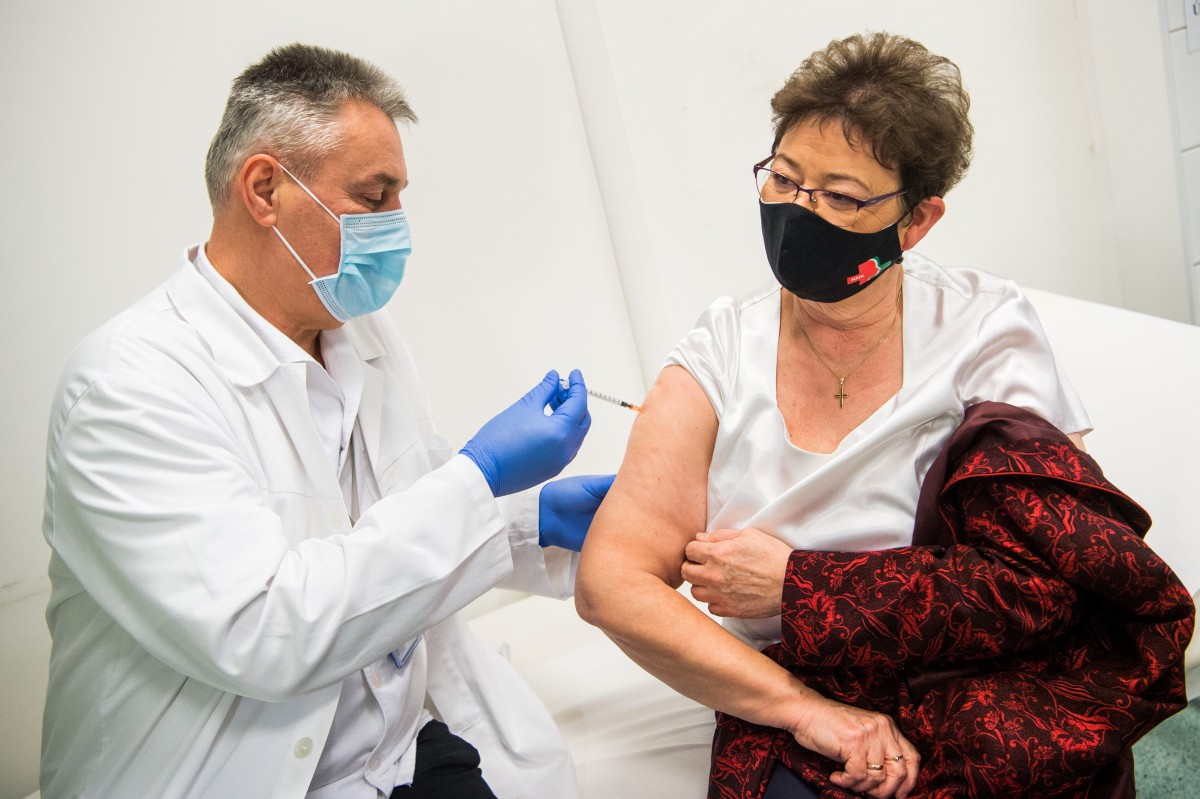Despite the balanced Hungarian epidemiological data, now is the time to get vaccinated – the national chief physician stressed in a statement to public media on Sunday. She also highlighted the mechanism of operation of the various vaccines: any vaccine is better than no vaccine at all, and the wide range of vaccines offers greater potential.
She reported that the testing of the Russian vaccine, Sputnik V, was completed with good results at the National Center for Public Health (NNK), so this vaccine is now available in Hungary and has been approved alongside Pfizer-BioNTech, Moderna and AstraZeneca vaccines.
Cecília Müller said that the epidemiological data in Hungary have been very similar for ten days, citing as an example the fact that 1,370 people were diagnosed with coronavirus infection on Saturday, 64 of them passed away, 3,578 patients are hospitalized and 291 are on ventilators.
However, in addition to the stagnation in the number of cases, the data measured in wastewater show that “in some places, there has been a slight increase”, she pointed out.
According to Cecília Müller, despite the Hungarian data that “seem balanced”, “now is the time to get vaccinated”. The chief physician also called it important for as many people as possible to get vaccinated as quickly as possible.
She reported that the study of the Russian vaccine, Sputnik V, had been successfully completed at the National Center for Public Health (NNK), so this vaccine can also be used in Hungary in addition to the previously approved Pfizer-BioNTech, Moderna and AstraZeneca vaccines.
Hungary expects enough vaccines from Sputnik V to vaccinate one million people and enough of the Sinopharm vaccine from China to vaccinate another 2.5 million people.
The national chief physician also highlighted the mechanism of action of the various vaccines:
any vaccine is better than no vaccine at all, and the wide range of vaccines offers greater potential.
The main objective was first to protect the most vulnerable group of people and to reduce the number of serious illnesses and deaths.
The national chief medical officer explained that it was “luck in misfortune” that a vaccine against the coronavirus made with “any technology” can be effective.
In contrast, she cited as an example the H1N1 variant of influenza, against which only the vaccine containing the completely inactivated virus worked effectively, such as the Hungarian vaccine. The Chinese Sinopharm vaccine uses such a mechanism against the coronavirus, she indicated.
According to the national chief medical officer, “for her own medical indication”, the doctor may give one vaccine an advantage over the other for their patient.
Cecília Müller also indicated that 286,379 people have been vaccinated with the first dose of the vaccine so far, with more than 105,000 receiving the second dose.
She recalled that two of the three vaccination campaigns had already been completed: more than 80,000 people had been vaccinated, as well as residents of social institutions.
The vaccination campaign for the elderly has also started relying heavily on the help of GPs who have had very positive experiences. The Chief Medical Officer also thanked GPs, municipalities and ambulances’ staff in this regard.
(MTI)

















